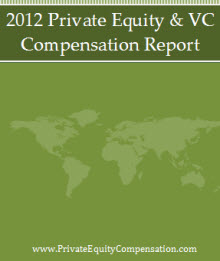No sooner than the report of a downward trend of private venture capital activities is released, another report emerges indicating that corporate venture capital is on the rise after several years of decline. According to the report, in 2010, investments by CVCs increased by 33 percent over 2009 and accounted for nearly 10% of all venture capital investments. While this may not come as a complete surprise, after all corporate balance sheets have been growing flush with cash since the economic downturn; the more aggressive investment posture taken by some CVCs is raising some eyebrows. For some industry observers, it resurfaces the issue of CVC compensation and whether it is suddenly becoming more aligned with independent VC compensation.
Companies, such as Google, GM, EMC, Verizon and even BMW, are stocking their internal VC units with huge amounts of cash, and are targeting investments that go beyond their traditional scope of companies that hold some strategic value for the company. Some of the larger CVCs, such as Google and GM are expanding their investments into companies with promising technologies that only peripherally related to their core business. Known for their lower risk tolerance and their tendency to invest in more mature companies, CVCs are beginning to venture into startup technologies and competing alongside independent VCs for the most innovative and profitable investments.
Until recently, the ability of CVCs to compete in the high stakes arena of risky startups has been hampered by their strict adherence to corporate pay structures in rewarding their VC units. The need to balance entrepreneurial finance and the organizational reality of “pay equality” has always limited a company’s ability to incentivize risk-taking among its internal VC staff. In fact, it has been problem for companies in retaining talented VC people who are drawn to the greener pastures of independent VCs. The issue has been studied exhaustively by scholars such as Gary Dushnitsky who have concluded that, until the pay structures are equalized, CVCs will not be able to effectively compete with independent VCs.
Google Ventures is acting more and more like an independent VC every day, and it is able to do so because it operates as an independent business unit. As a CVC, it enjoys the best of both worlds – investment autonomy along with it access to the vast resources of the Google complex. This may be the model for serious CVCs going forward. At the very least, there are indications that more CVCs are moving in the direction of adding carry interest incentives that would put them on par with the independents.

